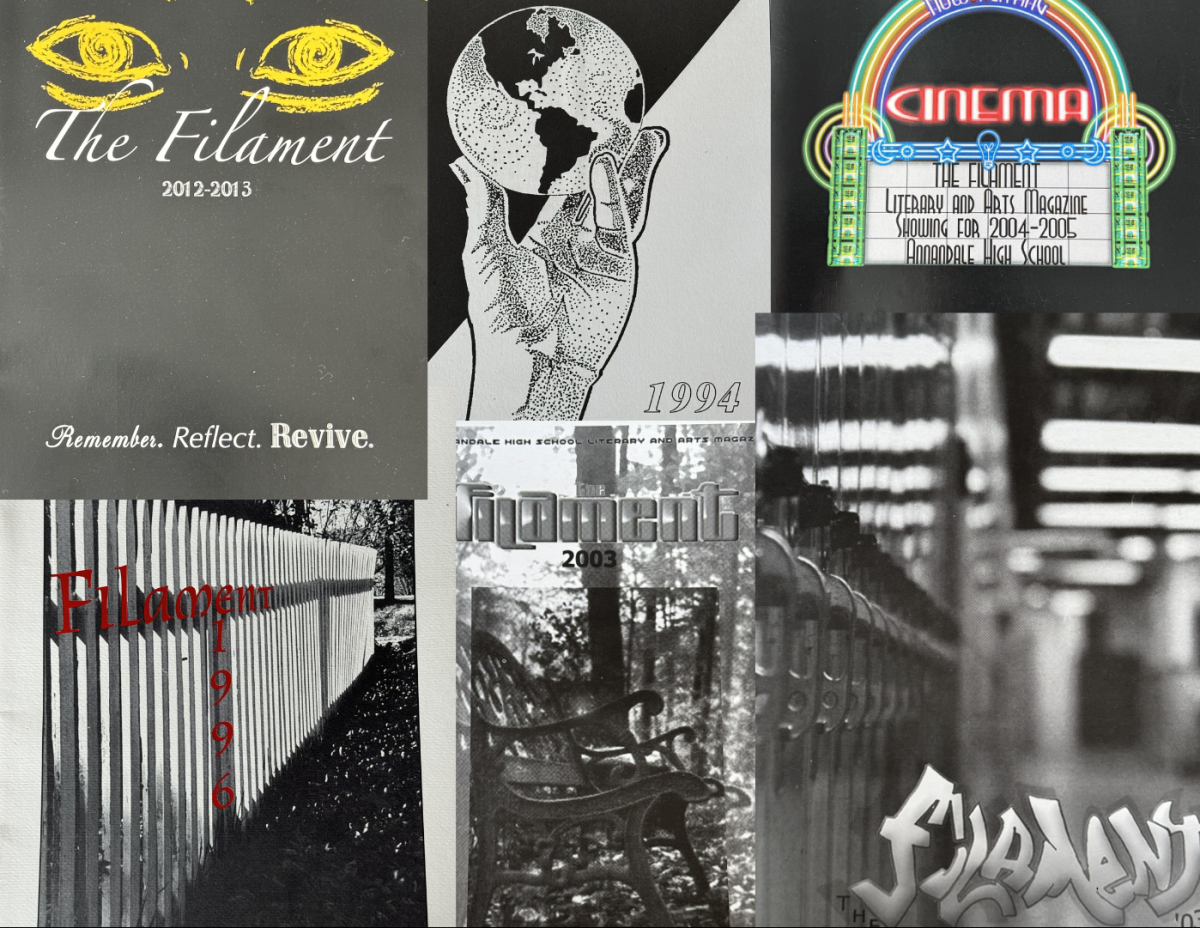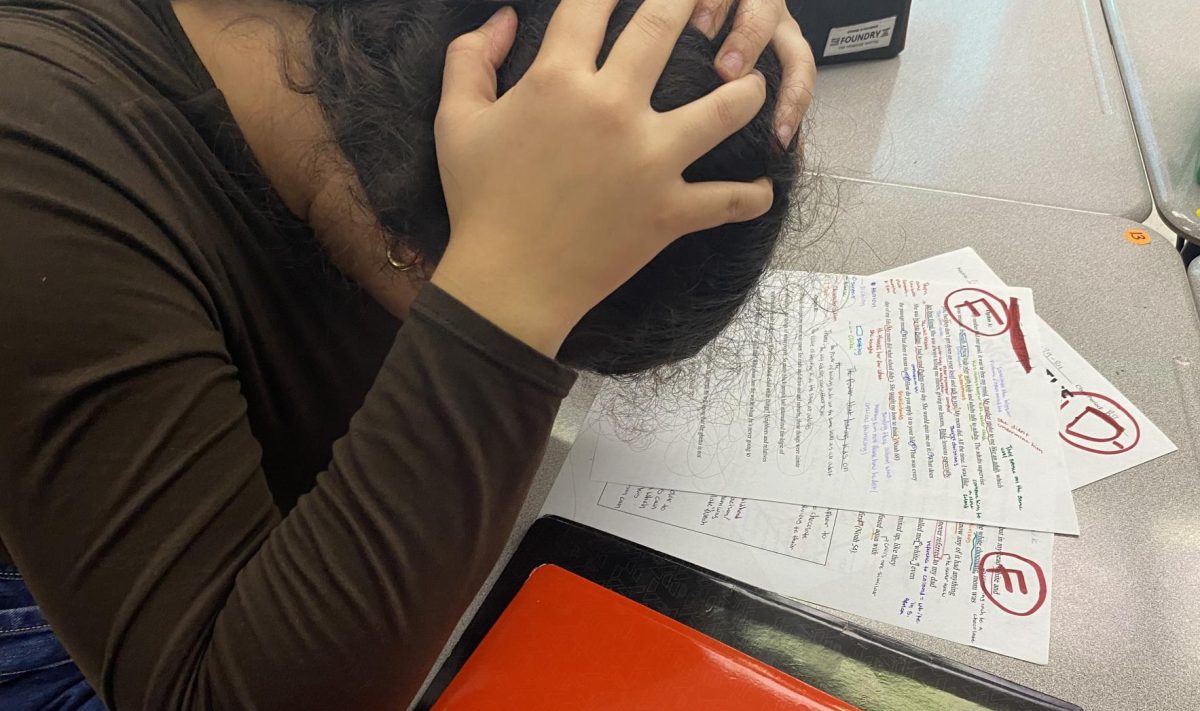Religion around the world may be declining, but AHS remains a school whose student body displays strong spiritual beliefs. By simply walking down a hallway, one finds students who proudly display their religion through head coverings like hijabs, turbans or pendants and other adornments, many of which feature crosses, Stars of David, yin-yangs and other religious symbols. Through extracurricular clubs like the Muslim Student Association and Fellowship of Christian Athletes, students can discuss their faith with their peers.
The various outlets for student spirituality are also all-inclusive. All Fairfax County schools must adhere to a Declaration of Nondiscrimination, which states that “no student, employee or applicant for employment in Fairfax County Public Schools shall, on the basis of race, color, sex, religion, national origin, marital staus or disability, be excluded from participation in, be denied the benefits of or be subjected to discrimination under any education program or activity.” The declaration can be found on page 13 of student agendas.
Though the AHS faculty and administration cannot legally endorse or control religious clubs, the presence of such organizations in the AHS community indicates a general tolerance towards the religious beliefs of students. Four major extracurriculars provide students with a spiritual outlet. The Muslim Student Association (MSA), sponsored by history teacher John Hawes and presided over by senior Saniyah Mir, meets two to three times a month and is comprised of about 30 members. The Jewish culture club, sponsored by health teacher Gabe Romano and presided over by senior Lillian Singer, meets about once a month and contains about ten members. The Fellowship of Christian Athletes (FCA), sponsored by ESOL teacher Paul Buschman and presided over by main leader Emma Barker, meets every Tuesday morning and contains approximately 25 members. Korean Bible Study, sponsored by math teacher Hee Chang Choi and presided over by Hong Rae Lee, meets every two weeks and is comprised of about 15 members.
The groups provide an important refuge for many members. Besides spreading awareness of their respective religions, clubs provide a safe and encouraging environment for discussion. For Muslim students who are struggling to find a balance between celebrating their religion and adapting to Western culture, the MSA provides welcome help.
“Some of our students are very confident and proud of their religion, but some people really struggle with showing their religion in school because the media spreads such negative pictures of Muslims in general,” MSA president Saniyah Mir said. “Some don’t want to show religion in school and have people associate them with terrorists or other Muslim stereotypes. They don’t know how to appear as a regular high school student but also practice religion daily.”
Other clubs provide students with a sense of peace and a place to decompress before beginning their days.
“FCA meetings are basically a place where students can come to be encouraged before their annoying school day begins,” FCA leader Emma Barker said.
Thanks to the Equal Access Act of 1984, AHS is also federally required to provide all extracurricular organizations, including religious clubs, equal access to the school building due to its status as a government funded school. The Act ensures that local groups are able to hold meetings and events at AHS, which can fall under athletic or academic categories. The most well-known user of the AHS school building, however, is the Chinese School, a group that holds Sunday school lessons in classrooms over the weekend. The School is entitled access to AHS, though many teachers complain that its students damage or steal classroom contents.
Despite our religious diversity and tolerance and the many regulations that forbid AHS to bias against any specific religion, some students still believe that members of the school population show discrimination. Mariatu Atimbo, a junior who identifies with the Muslim faith, believes that bias towards the Christian religion can be found in school halls, and around the country.
“I think that America in general shows preferential treatment to Christians, because schools don’t get any Muslim or Jewish holidays off,” Atimbo said. “I also think some students discriminate against Muslims, because they’ll ask you what your religion is and you’ll say ‘I’m Muslim,’ and then they’ll just say ‘Oh, really?’ and leave it at that. But you know exactly what they’re thinking.”
Mir also confessed that while the school administration is generally supportive to the MSA, there was an incident that made her feel that there might be a bias against her club.
“Recently we wanted to do a Flex presentation about Muslims Without Borders, a Muslim organization that helped a lot with the conflict in Haiti,” Mir said. “We asked the administration about it and they said they thought it would be best as an after-school presentation, but didn’t say why specifically.”
“For the most part, we have complete freedom to express ourselves,” she added.
As a school with a strong and diverse spiritual base, religion plays a significant role within the student body. A tolerant administration and the presence of religious organizations allows students to strike a balance between their spiritual and academic identities.








Kellie Bellavance • Jun 25, 2012 at 8:42 pm
This is absolutely one of the more appealing blogs I have seen. It is so easy to assume you’ve seen it all, but there’s seriously some fantastic material on the internet.